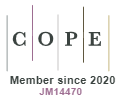The importance of educational interventions for adherence to the immunosuppressant treatment program to kidney-transplanted patients
DOI:
https://doi.org/10.5585/conssaude.v17n3.8204Palavras-chave:
Medication Adherence, Kidney Transplantation, Learning.Resumo
Introduction: the non-adherence to the immunosuppressant treatment program is frequent in kidney transplanted patients. To promote the adherence to this therapeutic, specific educational interventions for every learning style, can help create better results. Objective: verify the relevance of educative interventions adjusted to different learning styles for immunosuppressive treatment adherence in kidney transplant patients. Methods: cohort study. Fifty-nine (59) kidney transplanted patients took part in the study. To evaluate adherence was used the Basel Assessment of Adherence Scale for Immunosuppressives (BAASIS) instrument. The learning styles were identified by the VARK questionnaire. Results: significant differences were observed in the second (p<0,001), third (p<0,001) and fourth (p=0,009) evaluate of the adherence, when compared with the first one. There wasn’t found significant differences when related. They didn't go find differences significant when related the adhesion with the learning styles and too much demographic and clinical data. Conclusion: the adhesion to the imunossupressor doesn't seem to be associated to the specific interventions for each learning style.
Downloads
Downloads
Publicado
Como Citar
Edição
Seção
Licença
Copyright (c) 2018 ConScientiae Saúde

Este trabalho está licenciado sob uma licença Creative Commons Attribution-NonCommercial-ShareAlike 4.0 International License.
- Resumo 497
- PDF 322









